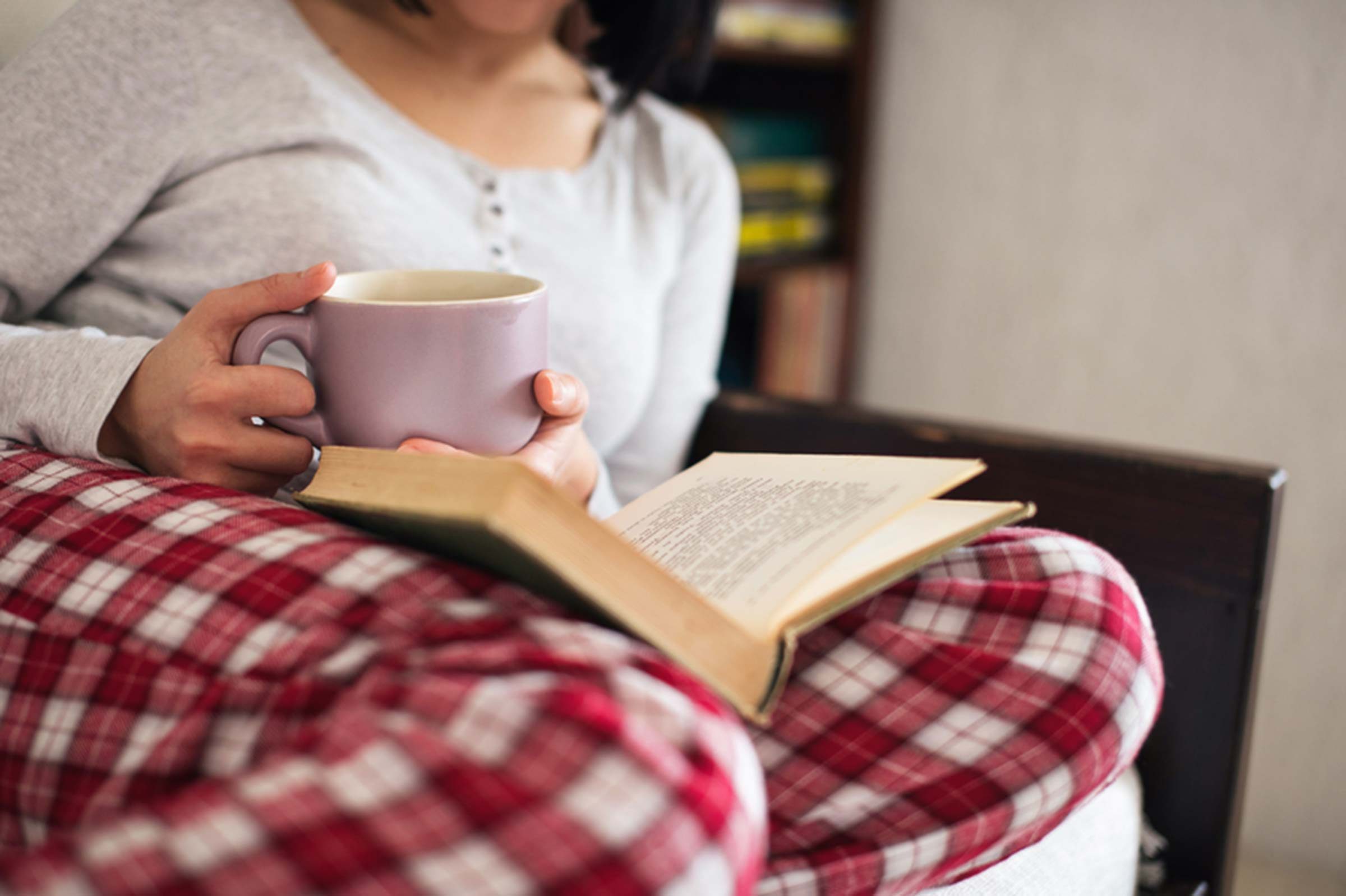
You wear the same pajamas year-round
What you wear matters, even while you sleep. Your body temperature plays a part in your sleep cycle—a slight drop in temperature is what induces sleep, says Raj Dasgupta, MD, a fellow of the American Academy of Sleep Medicine and assistant professor of clinical medicine at the Keck School of Medicine at the University of Southern California. That means being too hot or too cold can prevent you from getting a good night’s rest. Silk is ideal, according to Sleep.org, because it keeps you warm when you’re cold and cool when you’re hot. If silk is too pricey, try breathable cotton in the warmer months and cozy flannel during the cold. (Check out the 10 best pajamas for women and pick a pair with your favorite fabric.)
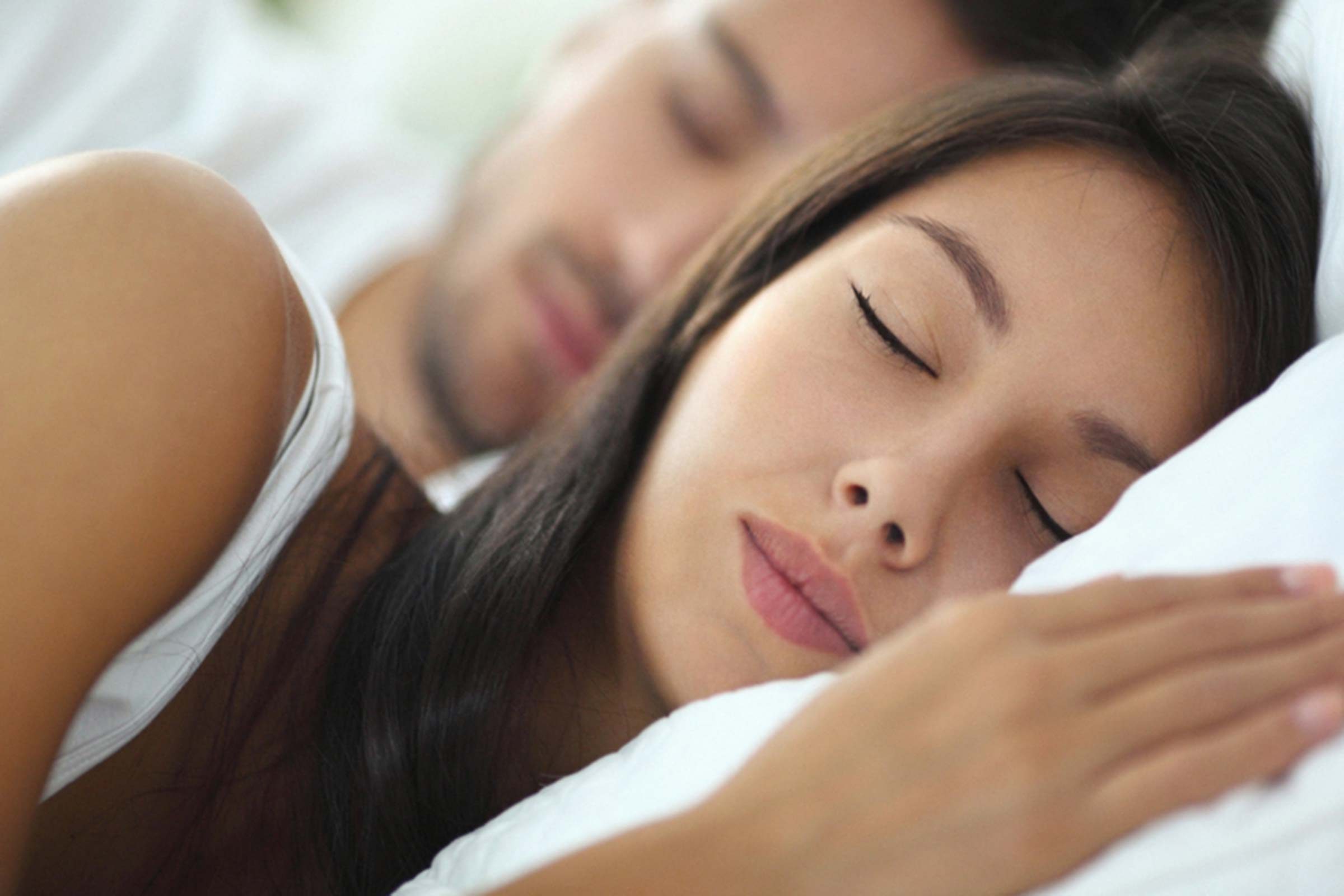
You sleep in the wrong position
If you try your hardest to sleep on your back because you heard it won’t give you wrinkles, you might end up with bags under your eyes instead. Sleep posture affects sleep quality and people should stick to what they naturally gravitate toward, says Steven Park, MD, on webmd.com. But certain conditions do call for a specific sleeping position that might not be natural but could still help you sleep better. Side sleeping is a good choice for people who snore or have a medical condition that requires the airways remain open, for example. Here are the best sleep positions for 11 common health problems.
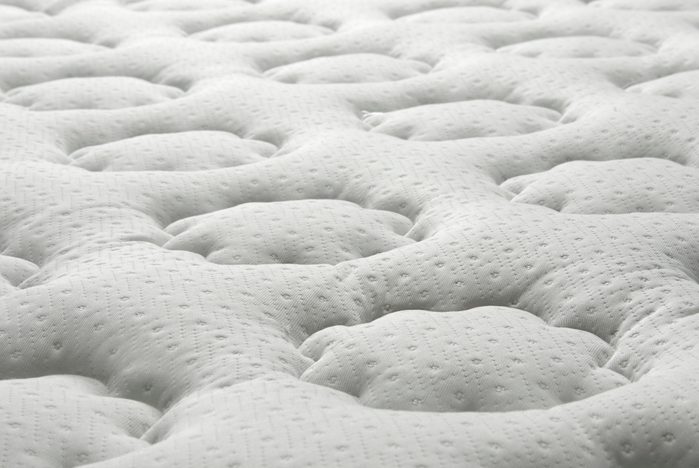
You’ve had the same mattress for years (or, uh, decades)
A well-loved mattress can leave you with an achy back and too few snoozing hours. The National Sleep Foundation recommends replacing your mattress about every eight years. If you’ve lost track of time, check for worn or sagging spots in the middle or at the edges; these signal it’s time for a change. For optimal z’s, look for a mattress with a medium firmness. Our experts recommend DreamCloud mattress because it’s a hybrid, so it’s got the comfort of a high-density memory foam but also the supportive infrastructure of a traditional box spring mattress. “This unique combination makes DreamCloud a perfect solution for all sleepers,” says Craig Schmeizer, Co-Founder of DreamCloud. “It also features cooling-gel infused memory foam, hypoallergenic latex, and a cashmere-blend top, for a healthy snooze.” Try more little changes that will help you sleep better in just one day.
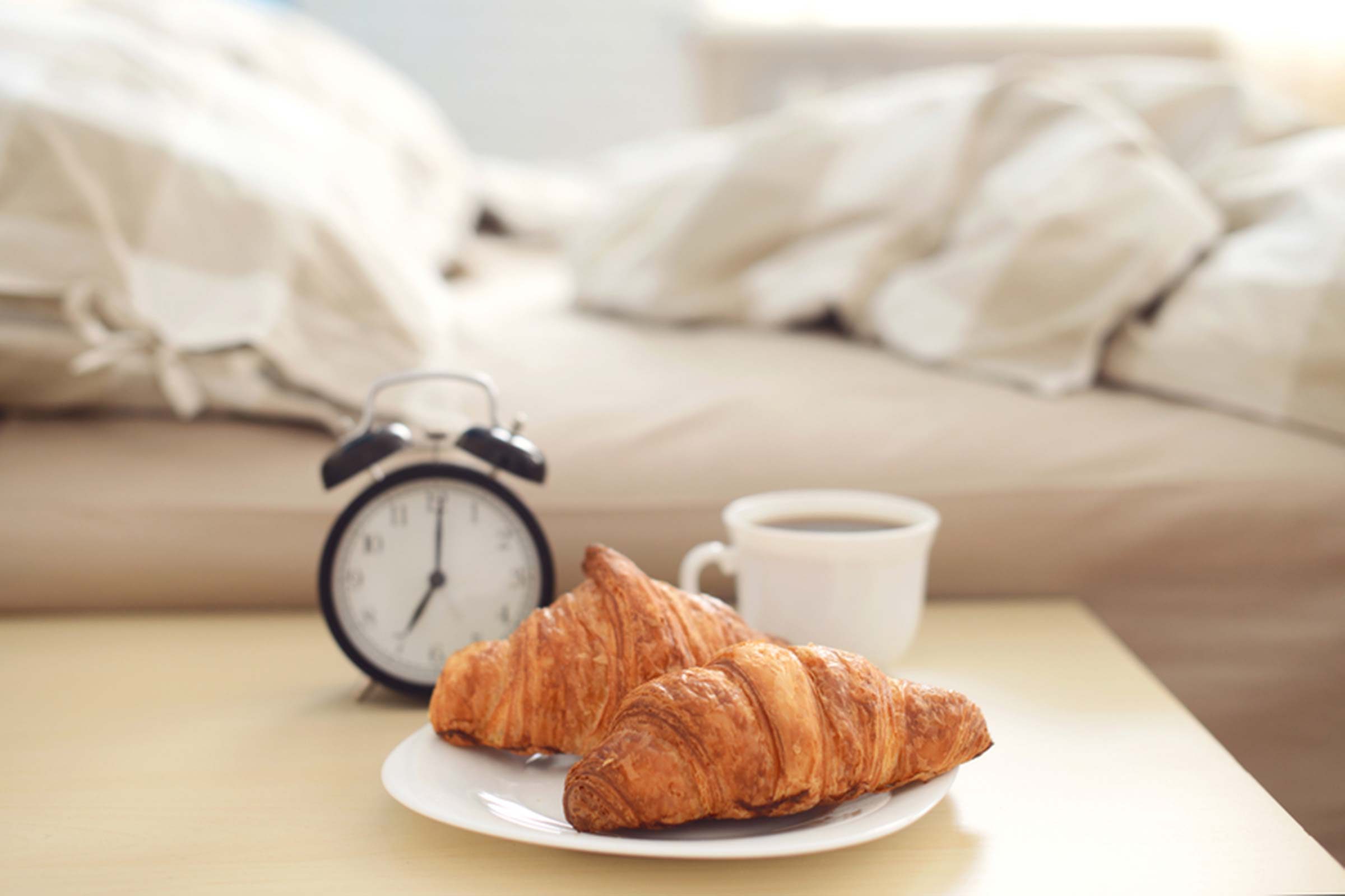
You leave dishes on your nightstand
We’ve all snacked or sipped a drink in bed, but leaving the remnants nearby is just asking for trouble. Critters like cockroaches are drawn to the smallest of crumbs, so consistently sleeping beside an empty bowl of popcorn or empty glass of wine could entice visitors while you slumber, Paul Bello, exterminator and owner of PJB Pest Management Consulting told huffingtonpost.com. Plus, late-night snacks can trigger heartburn, which will keep you up. “I’m not telling you to go to bed hungry, just snack throughout the day or earlier in the night,” says Dr. Dasgupta. Eating late at night can also mess with your metabolism and your health.
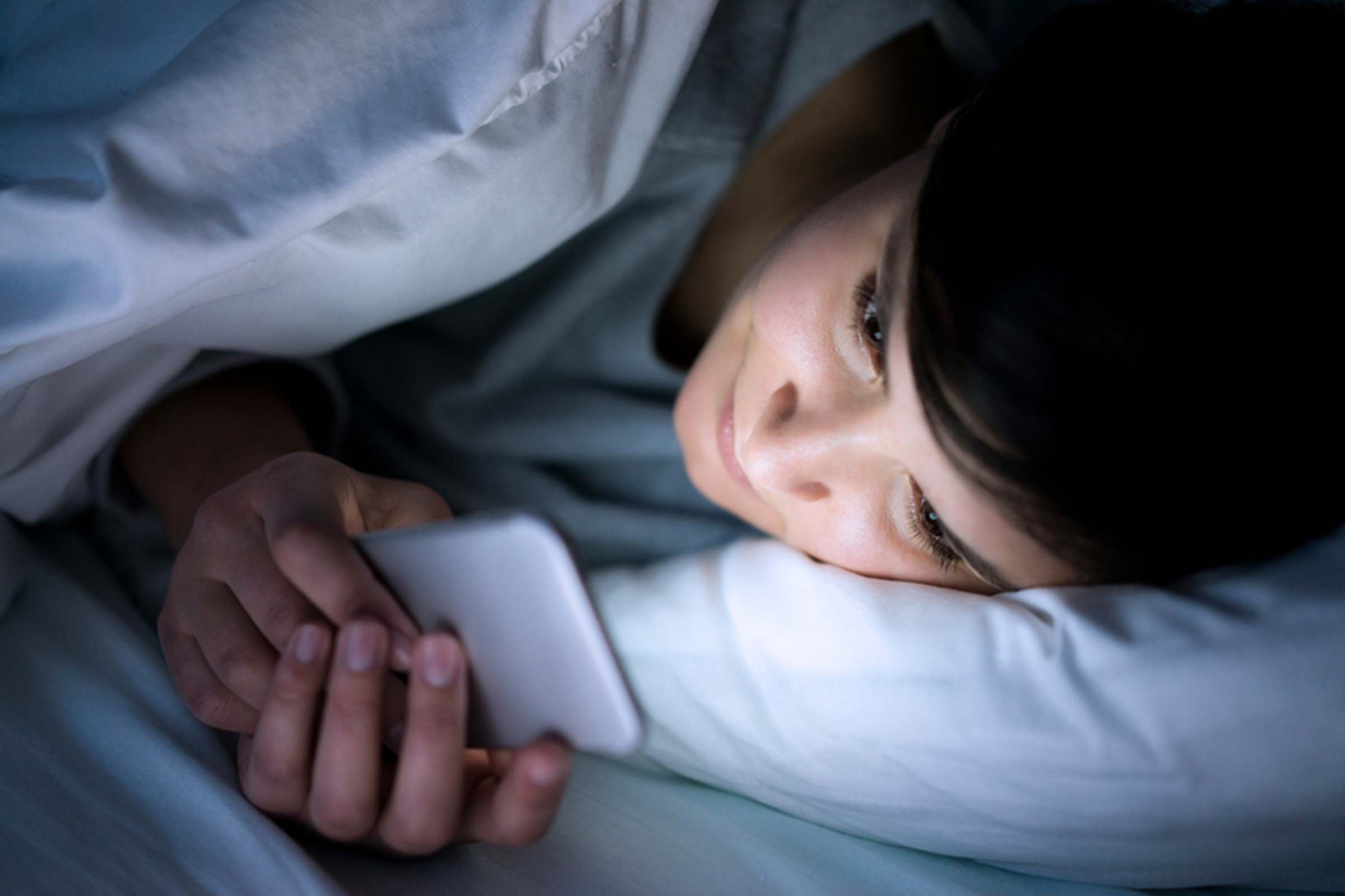
Your phone is your “lullaby”
It might seem like a quick game of Candy Crush or some social media browsing would put you to sleep, but it actually does the exact opposite. Research shows that the blue wavelength light from LED-based devices like phones, tablets, and laptops increases the release of cortisol in the brain (making you more alert) while inhibiting the production of melatonin (the hormone that lulls us to sleep). In fact, Harvard researchers found that people who read an e-book before bed took an extra 10 minutes to fall asleep and released half the amount of melatonin than those who read a paperback book. “I always joke that I’ll tell my patients to read a book before bed, then realize that they’re not going to pick up an old novel of Moby Dick but instead take out their tablet, which is counterproductive to transitioning to sleep,” says Dr. Dasgupta. Don’t miss more “harmless” habits that could cause insomnia.
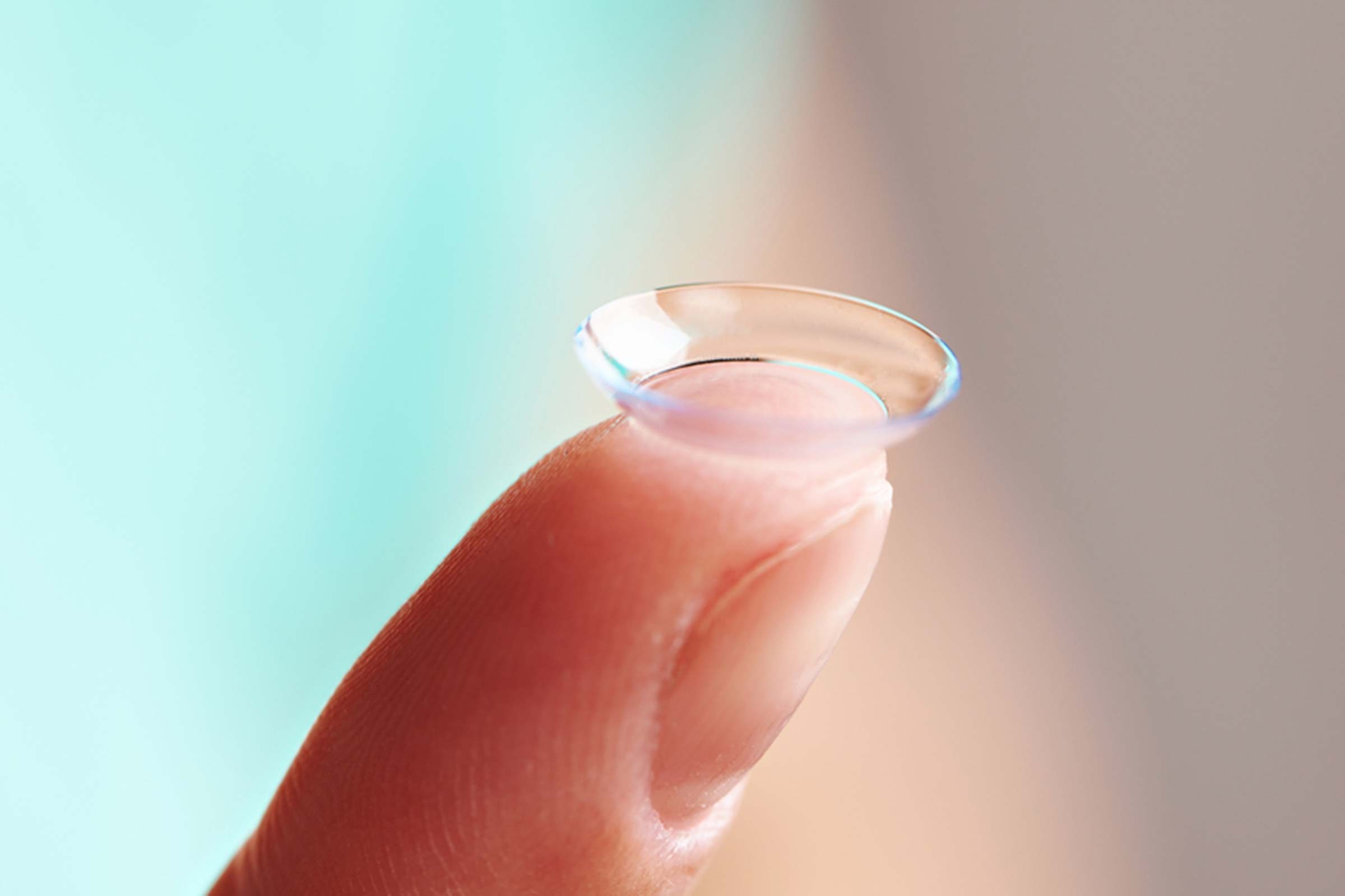
You sleep with your contact lenses in
Unless your lenses are approved for overnight use, you should always remove them before bed. Regularly sleeping in contact lenses can increase the risk of eye infection, pain, light sensitivity, corneal ulcers, and even loss of vision, according to medicaldaily.com.
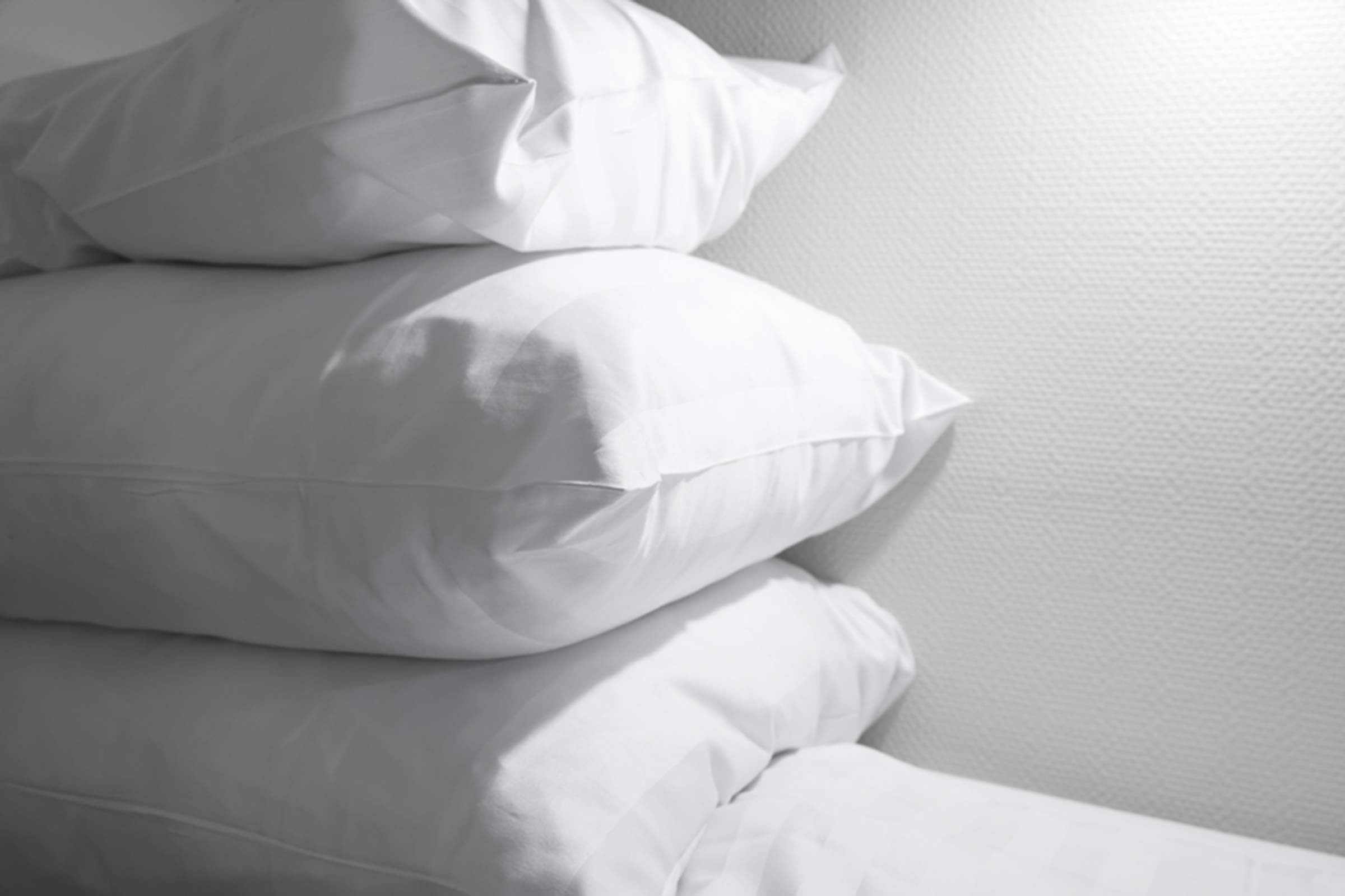
You never replace your pillows
Pillows are filled with more than feathers or polyester stuffing—they’re also landmines of dust, dust mites, and dead skin that can double the weight of a pillow in three years, according to Good Housekeeping. Wash pillows in the washing machine regularly over the course of its lifespan, and replace about every two years, according to the National Sleep Foundation. If you fold your pillow in half and it doesn’t spring back into shape, it’s time to replace. Waking up with a crick in your neck is another good sign.
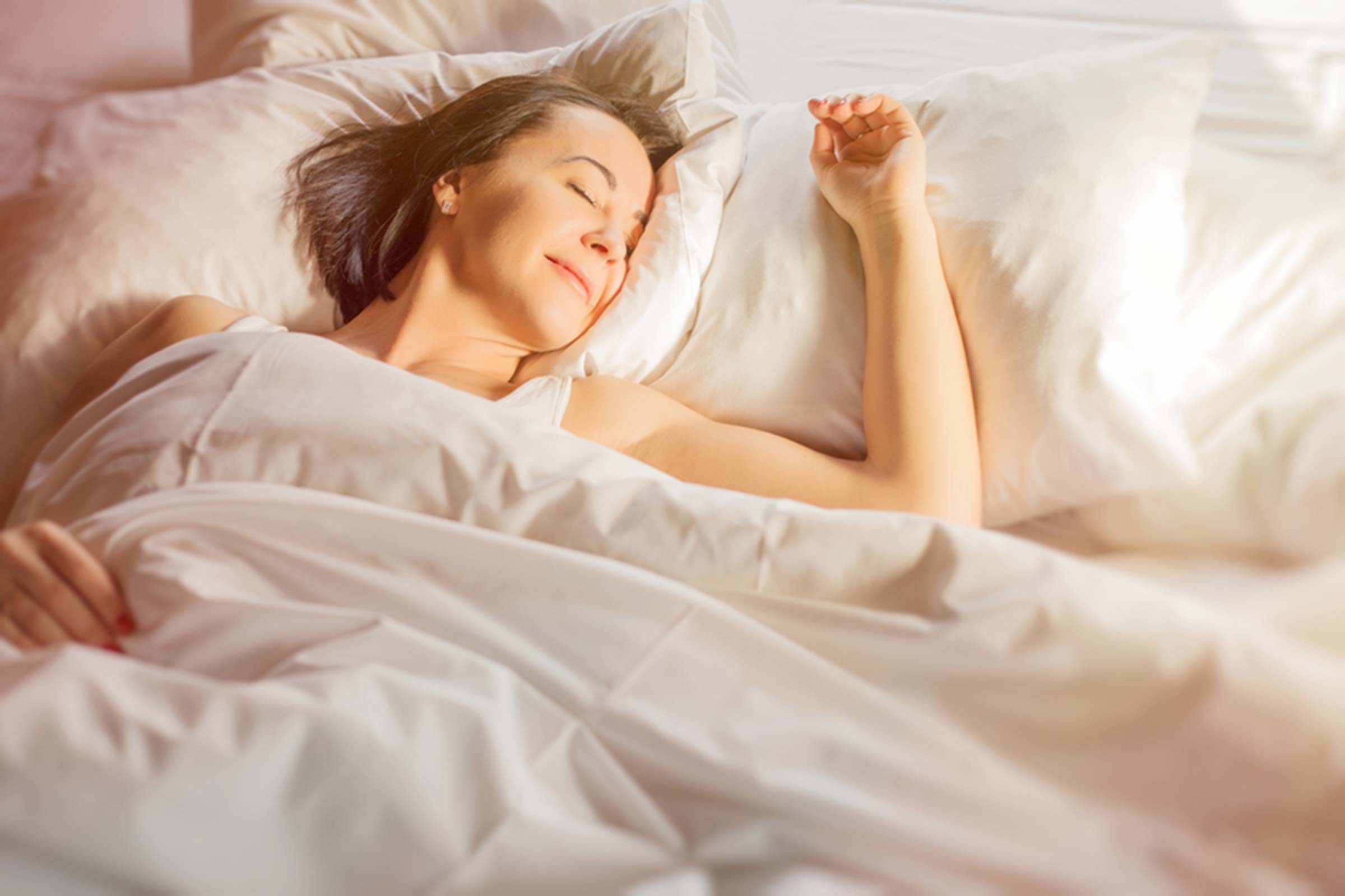
Your sleep schedule is nonexistent
Sleeping in on Saturday feels refreshing at the time, but it can sabotage the rest of your week. “Next thing you know, you get ‘Sunday insomnia,’ which leads to a sleep debt during the rest of the week that you can’t make up. Then it’s a vicious cycle,” says Dr. Dasgupta. Try your hardest to stick to a regular sleep and wake time that allows you to get seven to eight hours of shuteye, even on the weekend. (If you’re staying up late for no apparent reason, you could be a revenge bedtime procrastinator—here’s what to do.)
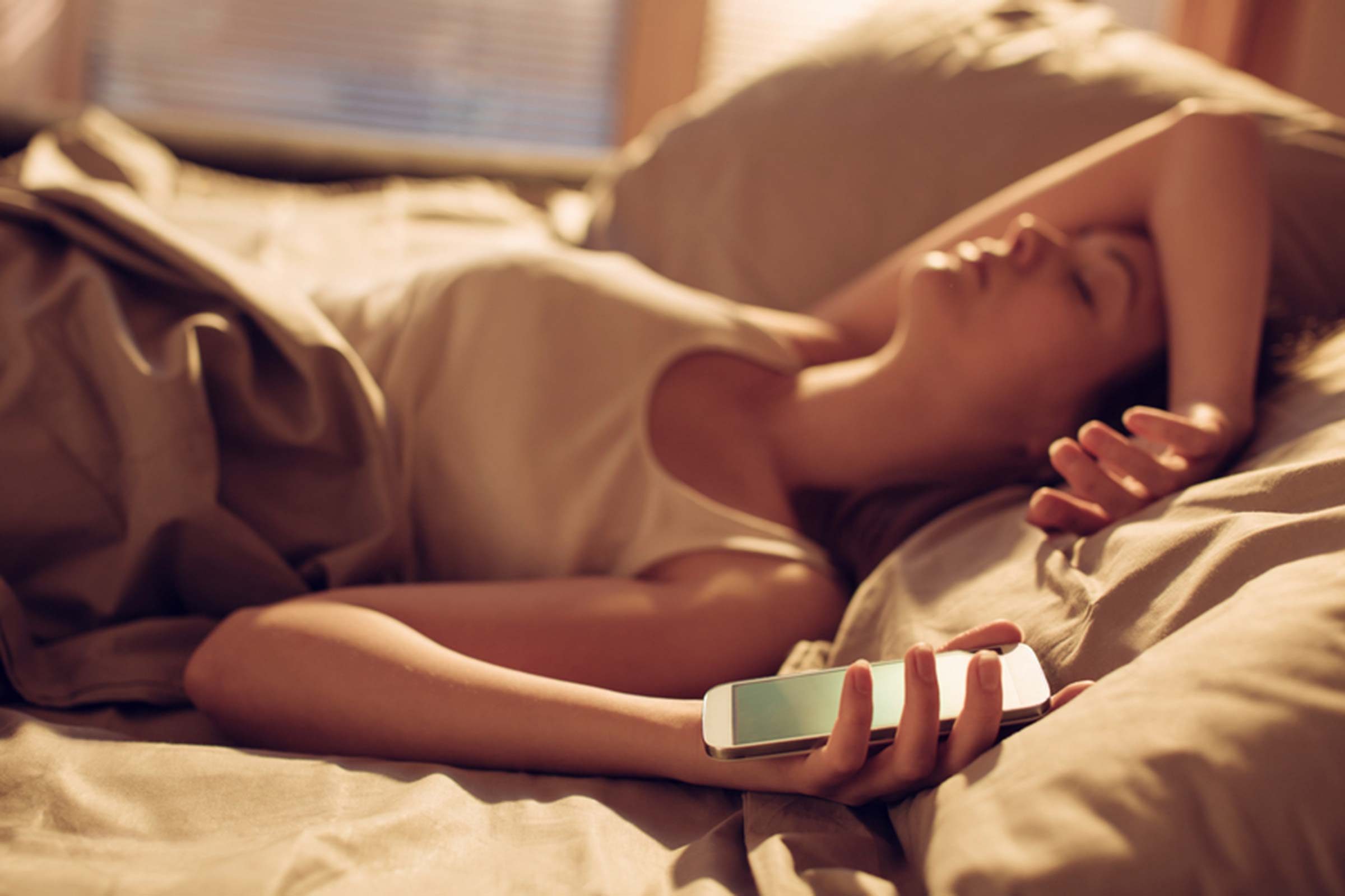
You sleep with your phone
If you can’t seem to separate from your phone, even at night, you might want to try harder. Your phone is dirtier than a toilet seat, covered in dirt, dust, and bacteria—not something you want to roll over on during the night. Not to mention, text messages or phone calls can wake you up in the middle of the night and leave you short on sleep.
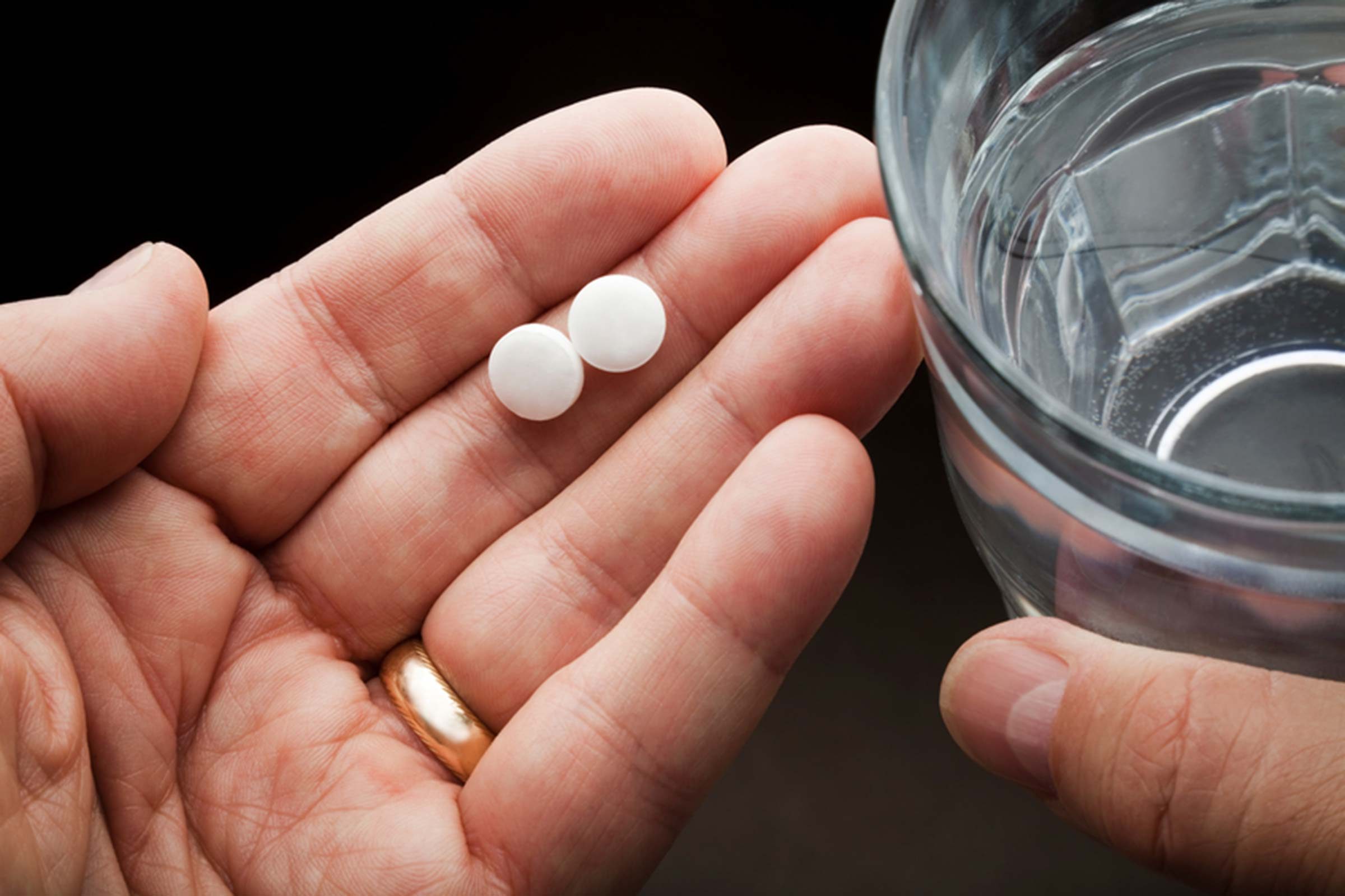
You rely on a sleep aid (without a doctor’s recommendation)
“Sleep aids are a big mistake,” says Dr. Dasgupta. Not only will you wake up groggy if you take them too late and don’t get the necessary six to eight hours of sleep they induce, you could also develop “rebound insomnia” when you stop taking them, and they can actually be a health hazard for people who have breathing problems or sleep apnea because they depress the respiratory drive, he says. “If you really think you need one, discuss it with your physician,” he says. Here are more sleep myths doctors wish you would ignore.
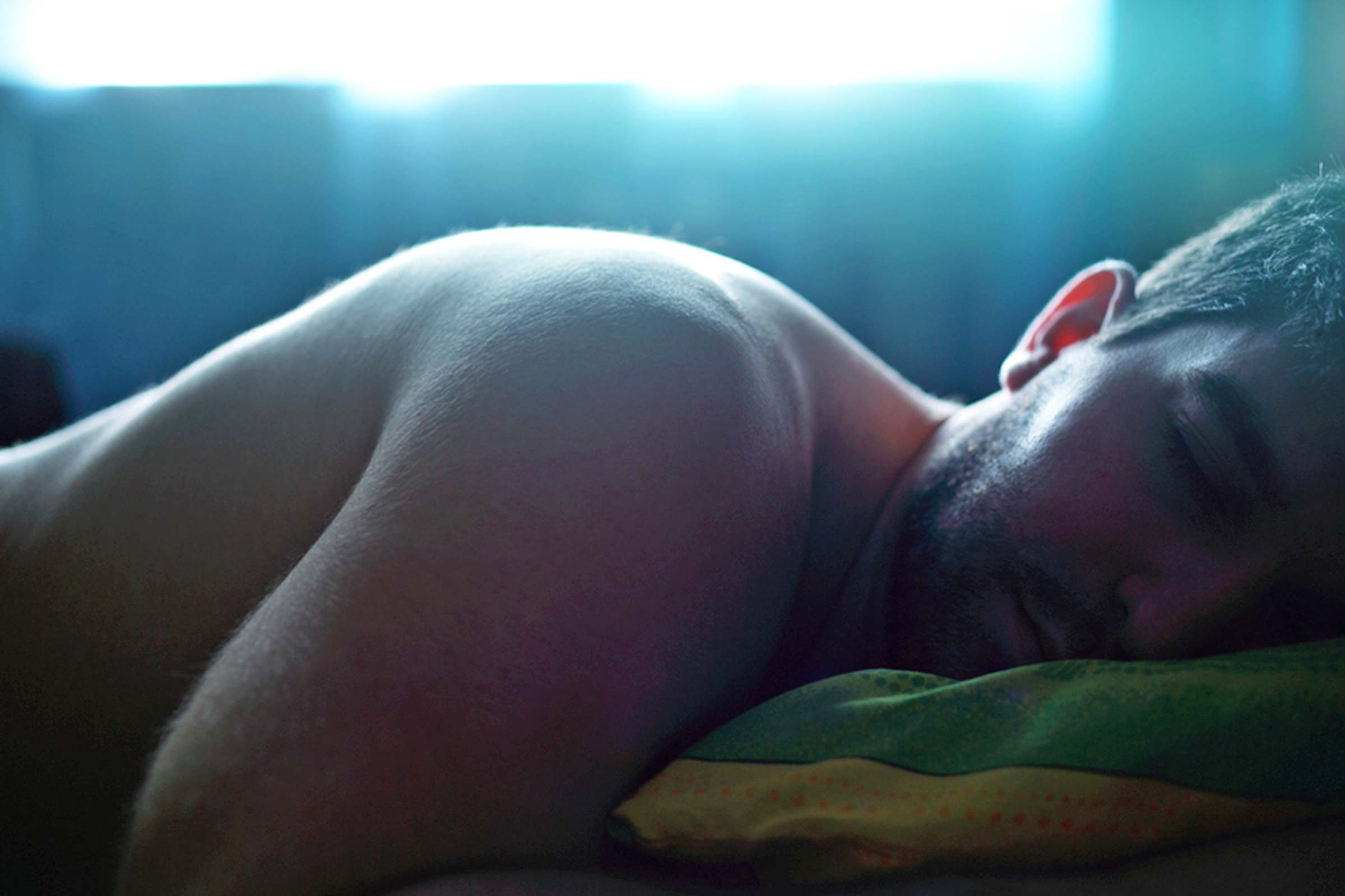
Your room isn’t pitch black
Your circadian rhythm is ruled, in part, by lightness and darkness, so even the smallest slit of light can throw it off kilter. Make sure the blinds are drawn completely, consider low-wattage lamps to help you wind down before bed, and check the room for sneaky sources of artificial light, such as bright alarm clocks or a hallway nightlight.
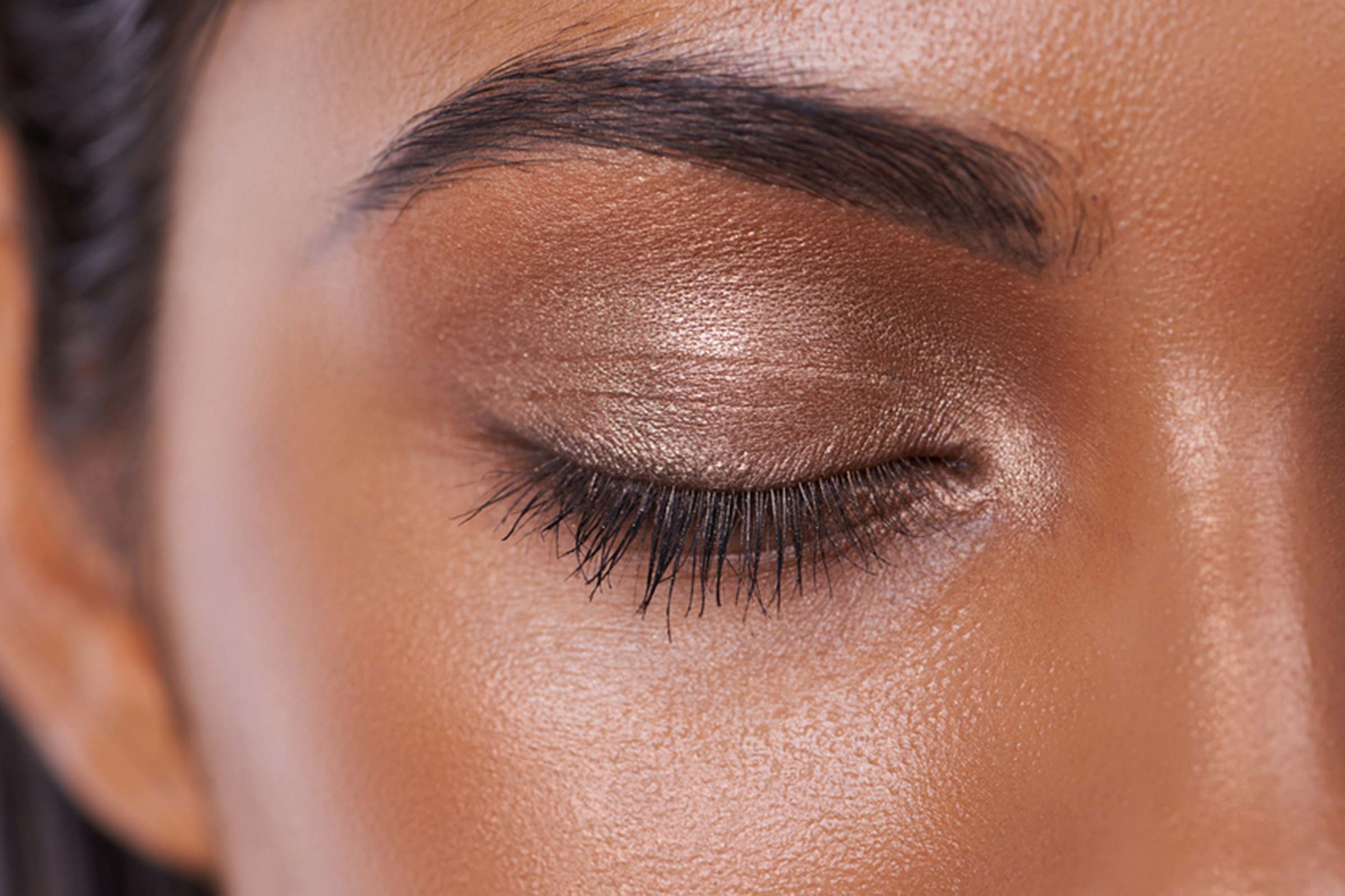
You sleep with your makeup on
Failing to remove your makeup before bed won’t just leave smears on your pillowcase, it will also do a number on your face. Leaving makeup on overnight can clog pores and oil glands, which can stretch them out and make them appear larger, according Dennis Gross, MD, founder of 900 5th Dermatology in New York City on Women’s Health. And once the damage is done, there’s no going back: as you age, your skin collagen levels decline, so stretched out pores won’t bounce back as easily, he says. Skipping the face wash can also cause inflammation, another aging risk. Here’s what dermatologists do to look younger overnight.
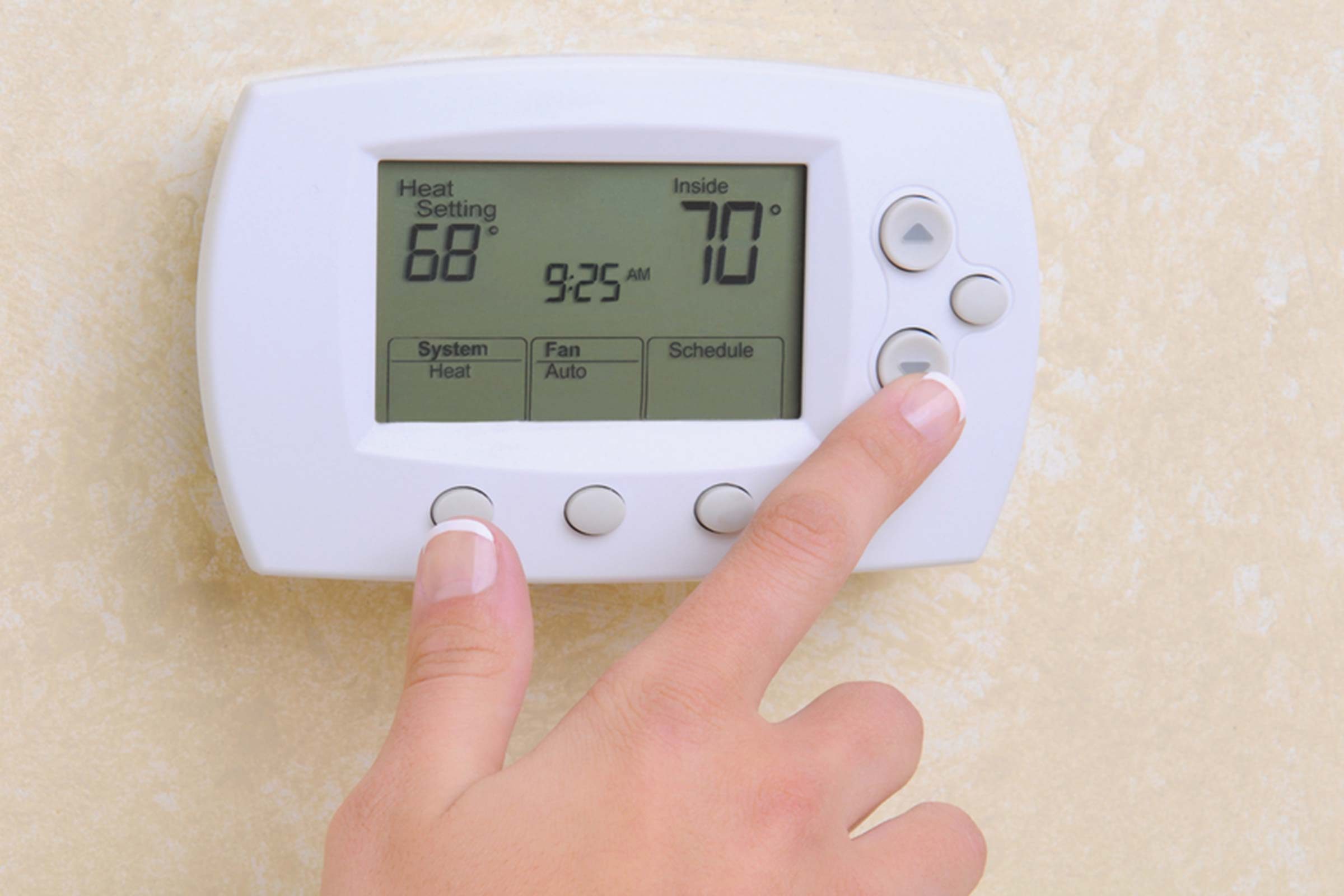
You don’t pay attention to the thermostat
Bedtime is one time it’s OK to be high maintenance. The temperature of your bedroom can interfere with your body temperature’s natural rise and fall, which is tied to your sleep cycle. Sleep experts say that a cool room, around 65 degrees, makes for the best sleep, according to the National Sleep Foundation. And interestingly enough, being cold while you sleep might also be good for weight loss. Here are more ways you can literally lose weight in your sleep.
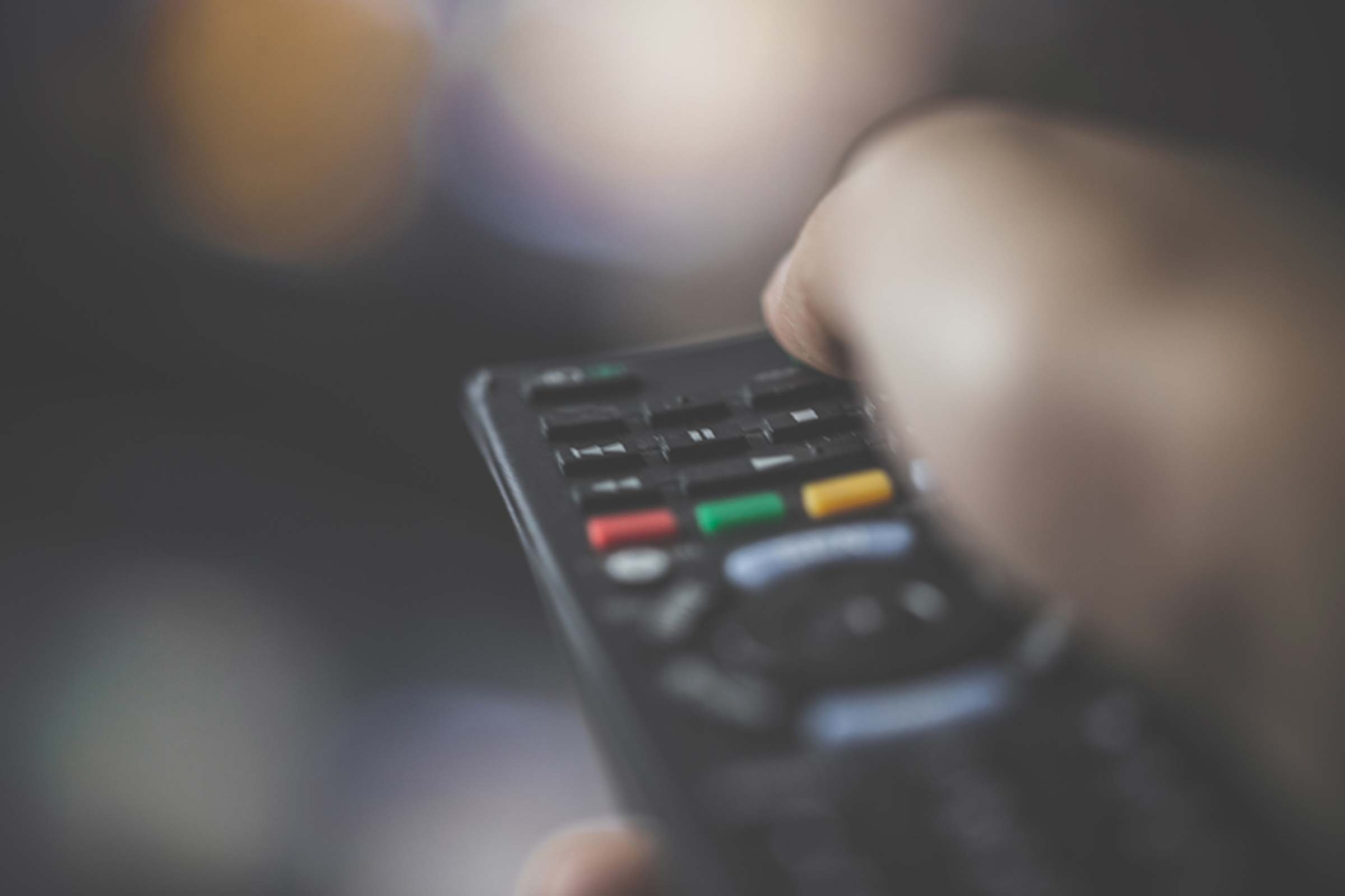
You fall asleep with the TV on
Your favorite flick might lull you to sleep, but it’s probably not a restful one. TV sounds are constantly changing in tone and volume, which can interrupt your cycle and even wake you up, according to the National Sleep Foundation. And whatever you watch could affect how long it takes you to doze off. “A lot of people watch something that’s mentally stimulating, like the news; you can’t watch the news these days without thinking about what you just saw, afterward,” says Dr. Dasgupta.
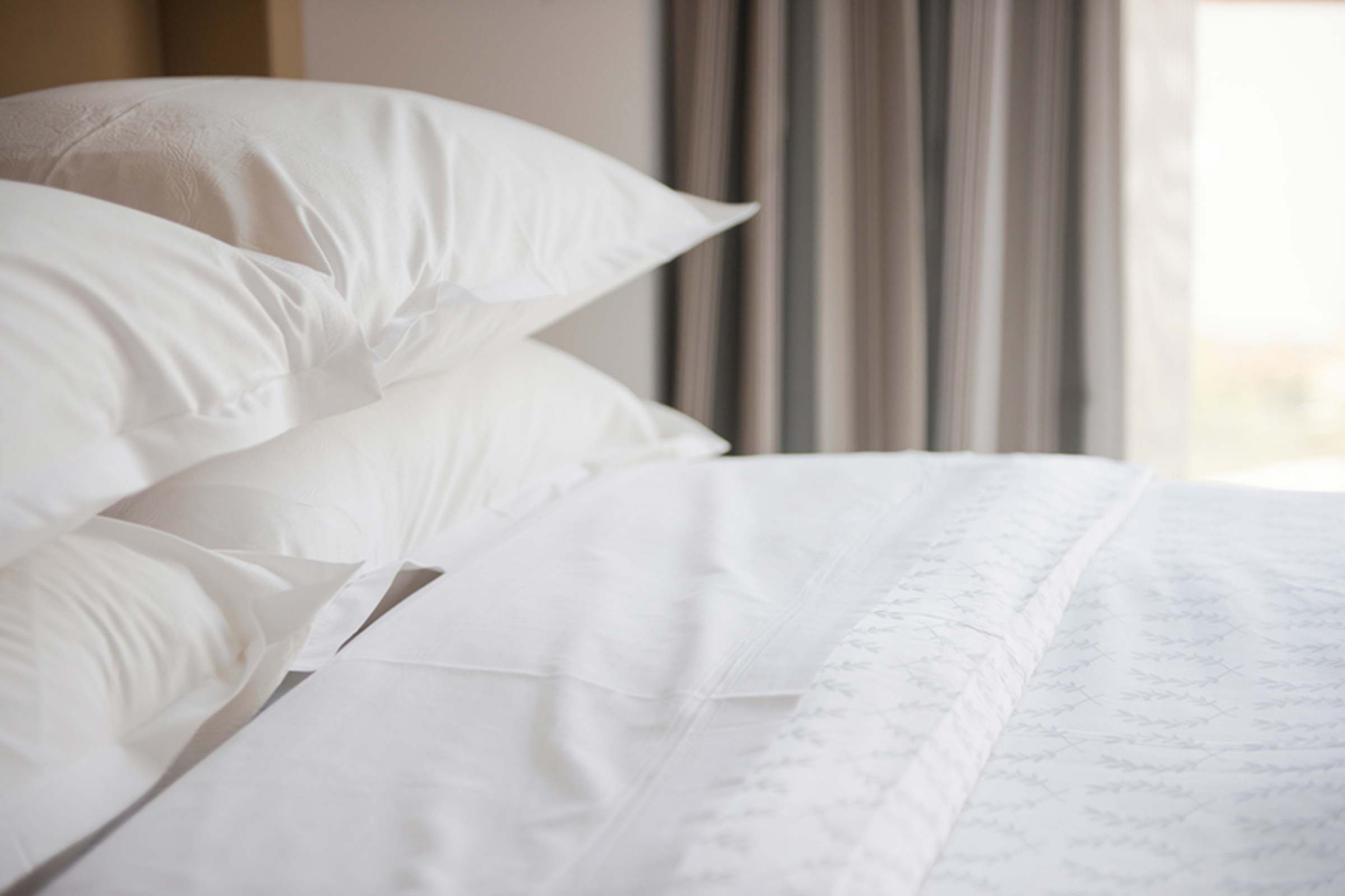
You’re too lazy to wash the sheets
Laundry is one chore you don’t want to neglect when it comes to your sheets. Bed linens are a comfy yet disgusting collection of millions of tiny dust mites and dead skin cells, as well as dried sweat. Without regular washing, your sheets could be putting you at risk for getting sick or irritate your allergies, according to Woman’s Day. Launder your sheets once a week, every two weeks if you must, and plump your pillows every morning to air them out, recommends cleanipedia.com.
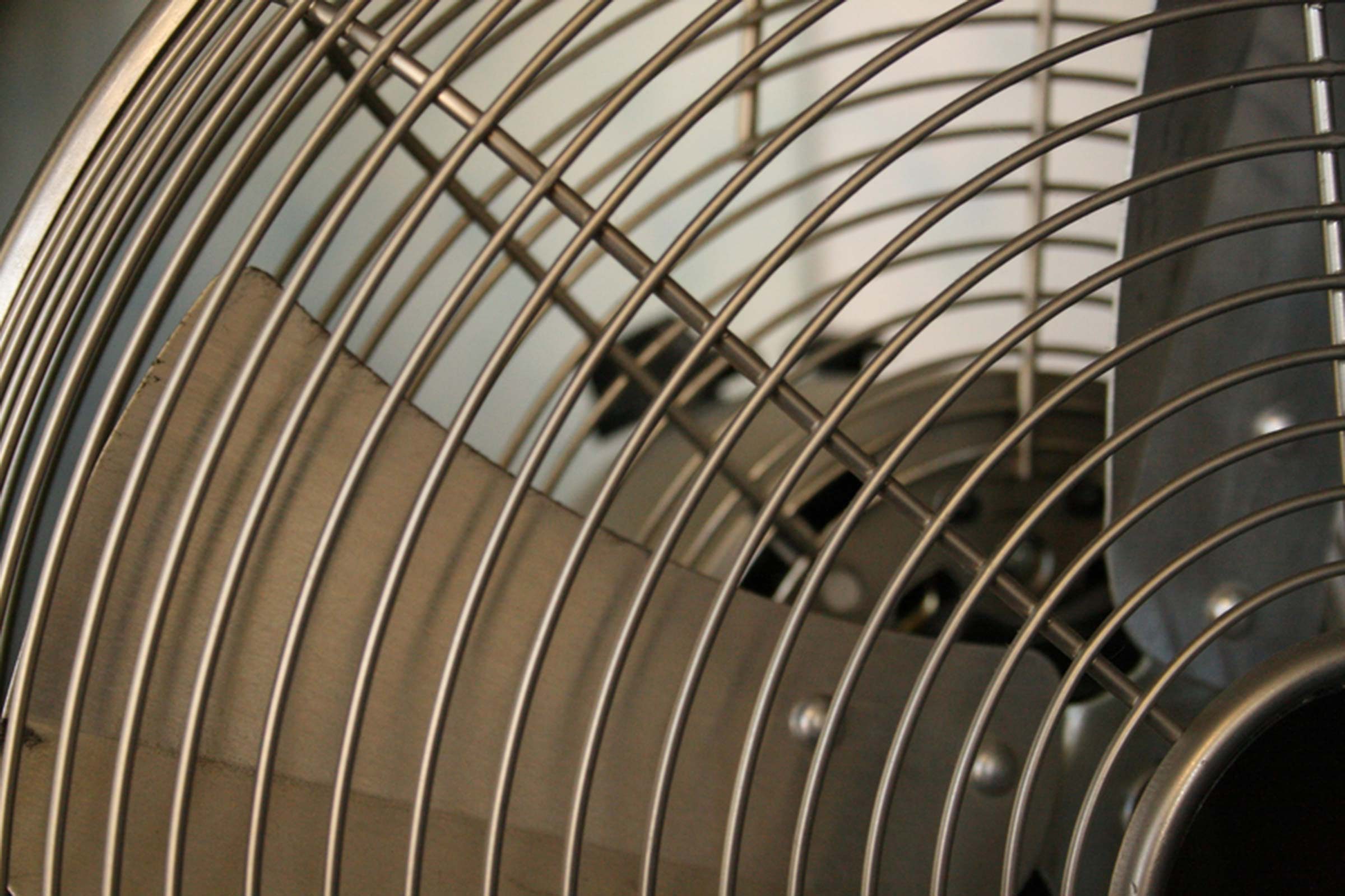
You think white noise is only for babies
The white noise tricks many parents used to help their little ones get a good night’s sleep don’t have to end when they outgrow the crib. Sounds from inside and outside the house can disrupt your sleep, especially during the second half of the night or if you’re a light sleeper to begin with. White noise machines, fans, air purifiers, and anything else that casts a low background hum can mask outside noises and enhance your slumber.
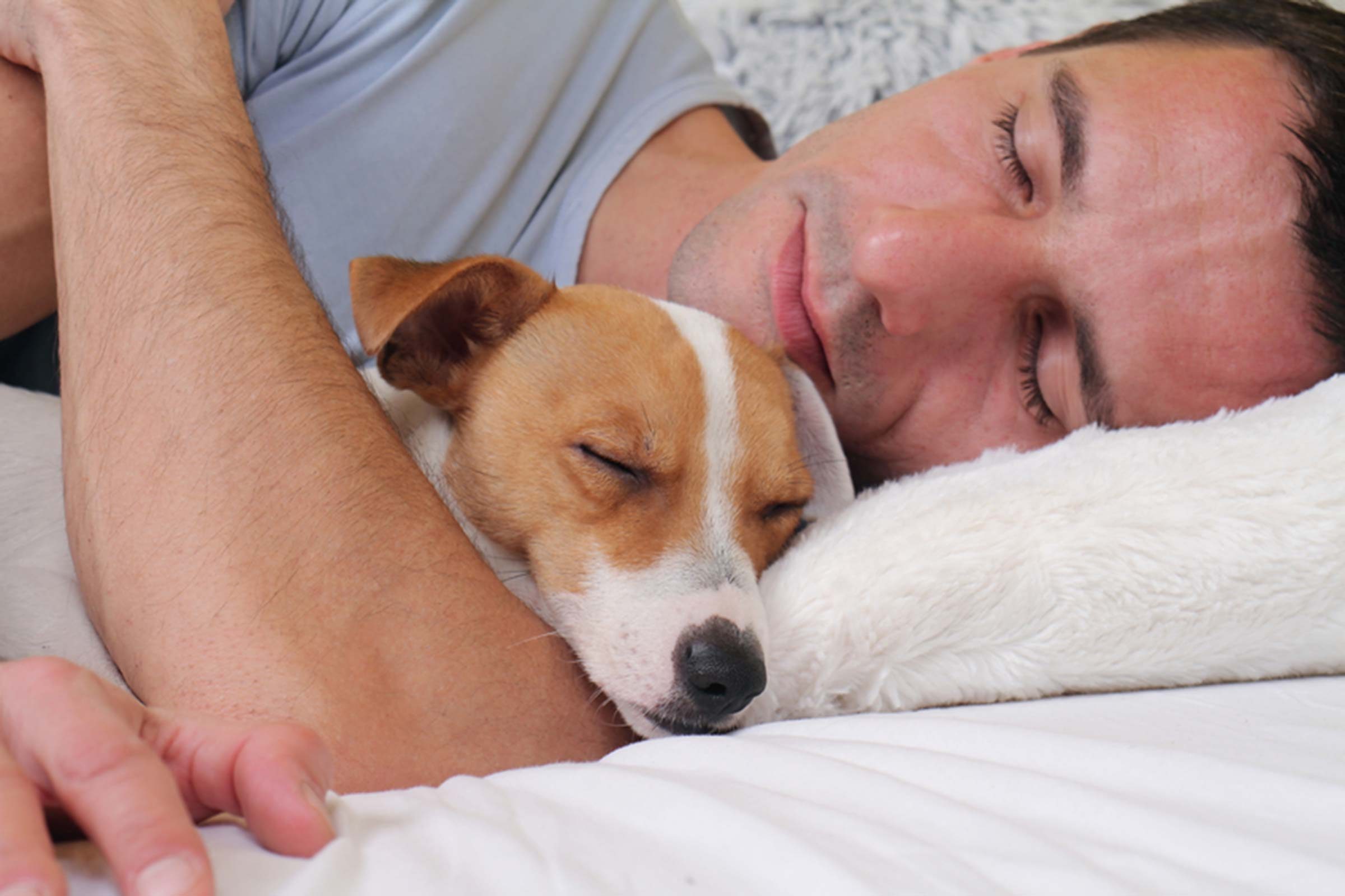
You sleep with your pet
Sharing the bed with man’s best friend seems comforting, but it could actually be anything but. “Pets bring dander and allergens into the bed, which can irritate your nose; once that gets inflamed and filled with mucus, you start snoring, and next thing you know you’ve gotten no sleep,” says Dr. Dasgupta.
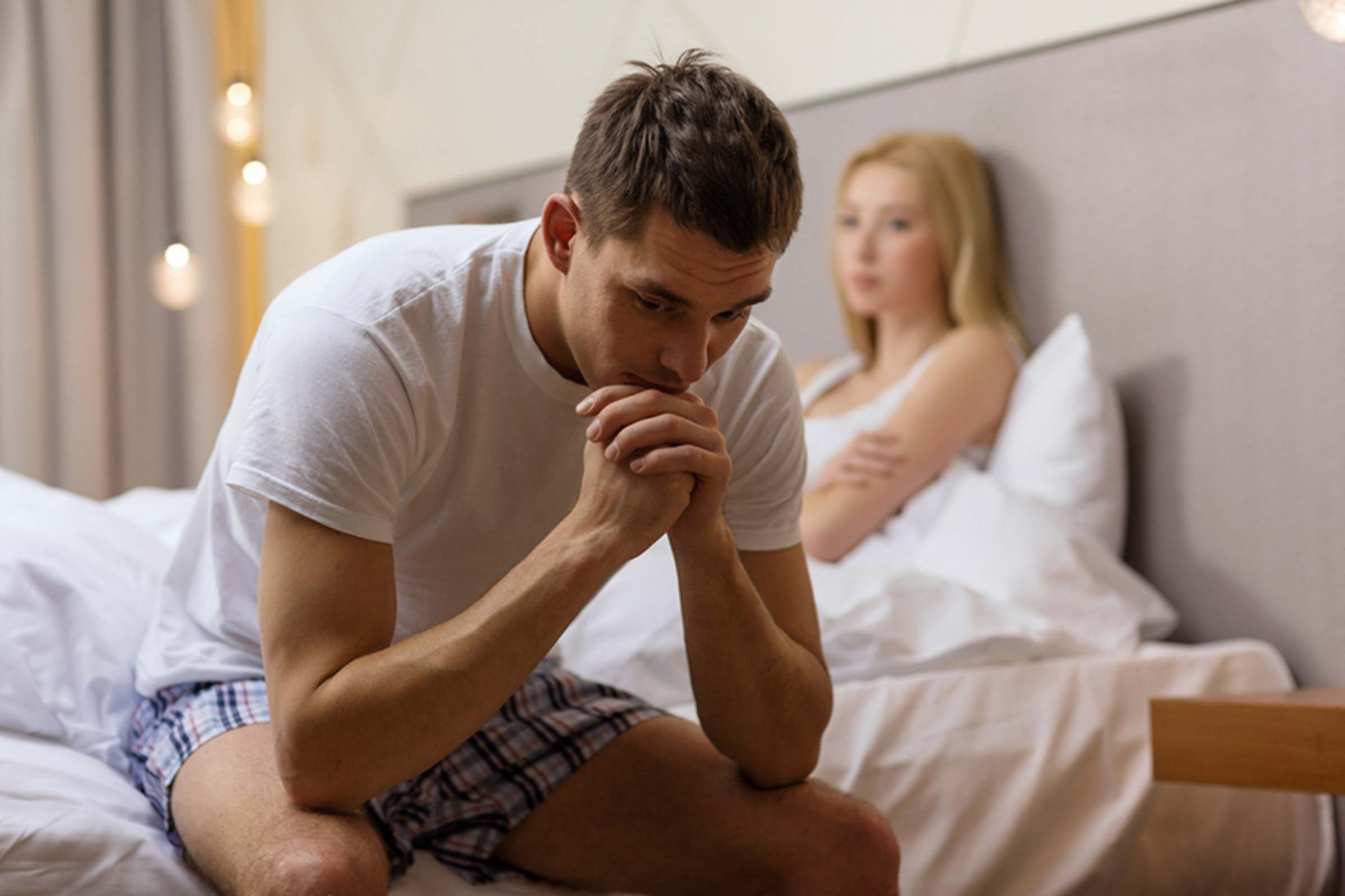
You treat your bed like a therapy couch
“Your bed should just be for sleeping, bottom line. It’s not the time to have a serious conversation about finances or relationship, those are the worst things you could talk about at night because they’re going to keep you up worrying,” says Dr. Dasgupta. Instead, set a “worry time” in a separate room where you can have tough talks.
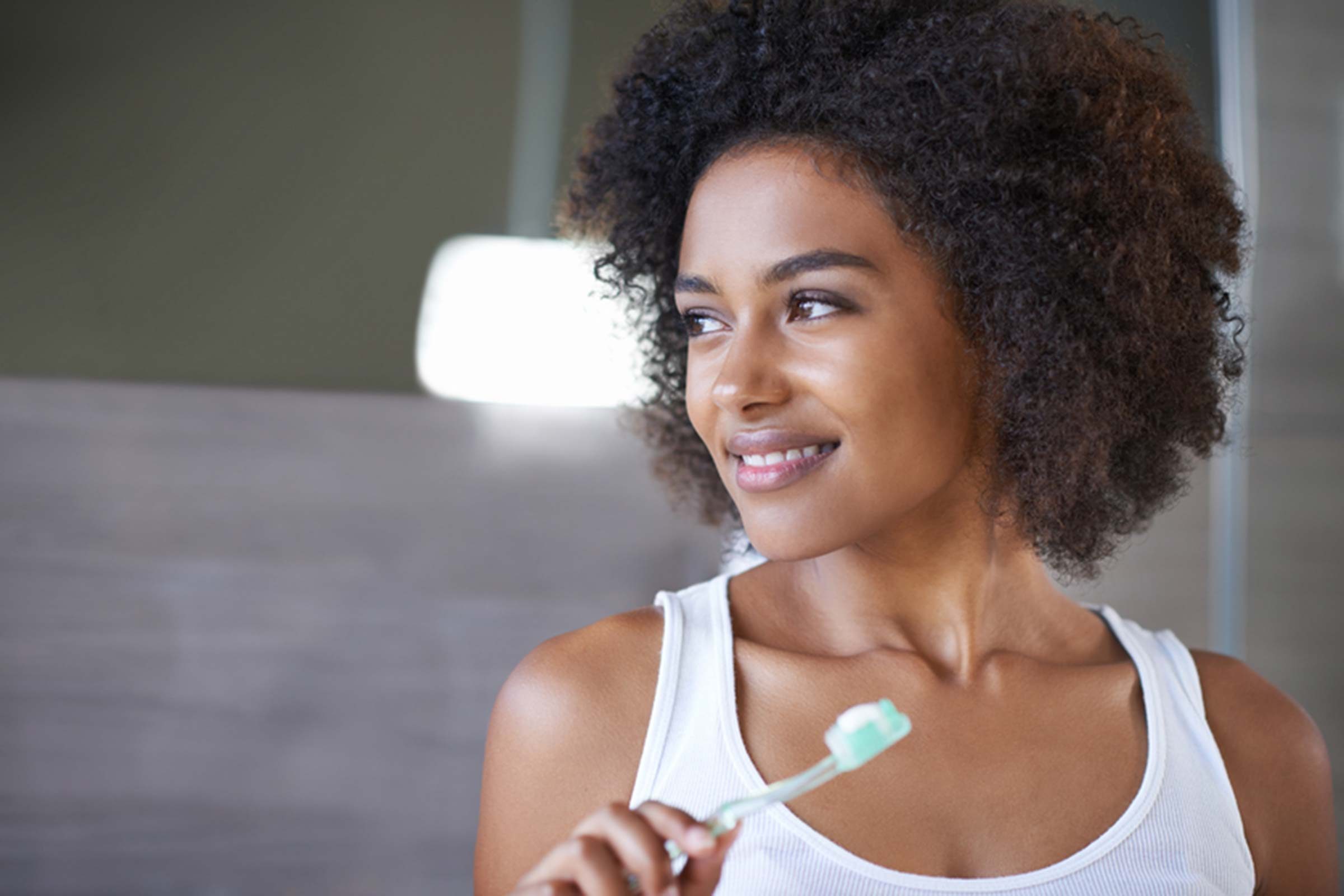
You don’t have a bedtime ritual
Whether it’s the order in which you brush your teeth and get dressed, or the type of music you put on before bed, a ritual can go a long way in getting you to dreamland faster. “As long as it’s relaxing, there’s no wrong ritual,” says Dr. Dasgupta. “Some people like meditation, others try acupuncture or relaxation stretches.” Here’s what to do if you’re waking up with anxiety at night.

You rely on a nightcap to fall asleep
A glass of wine might put you right to sleep, but it’s the wrong type of sleep. Alcohol prevents you from sinking into the deeper stages of sleep, says Dr. Dasgupta, so you wake up feeling tired. It also causes levels of your antidiuretic hormone (ADH) to drop, which forces your kidneys to produce more urine; then you wake up for a middle of the night bathroom trip. On the other hand, these foods can help promote better sleep.
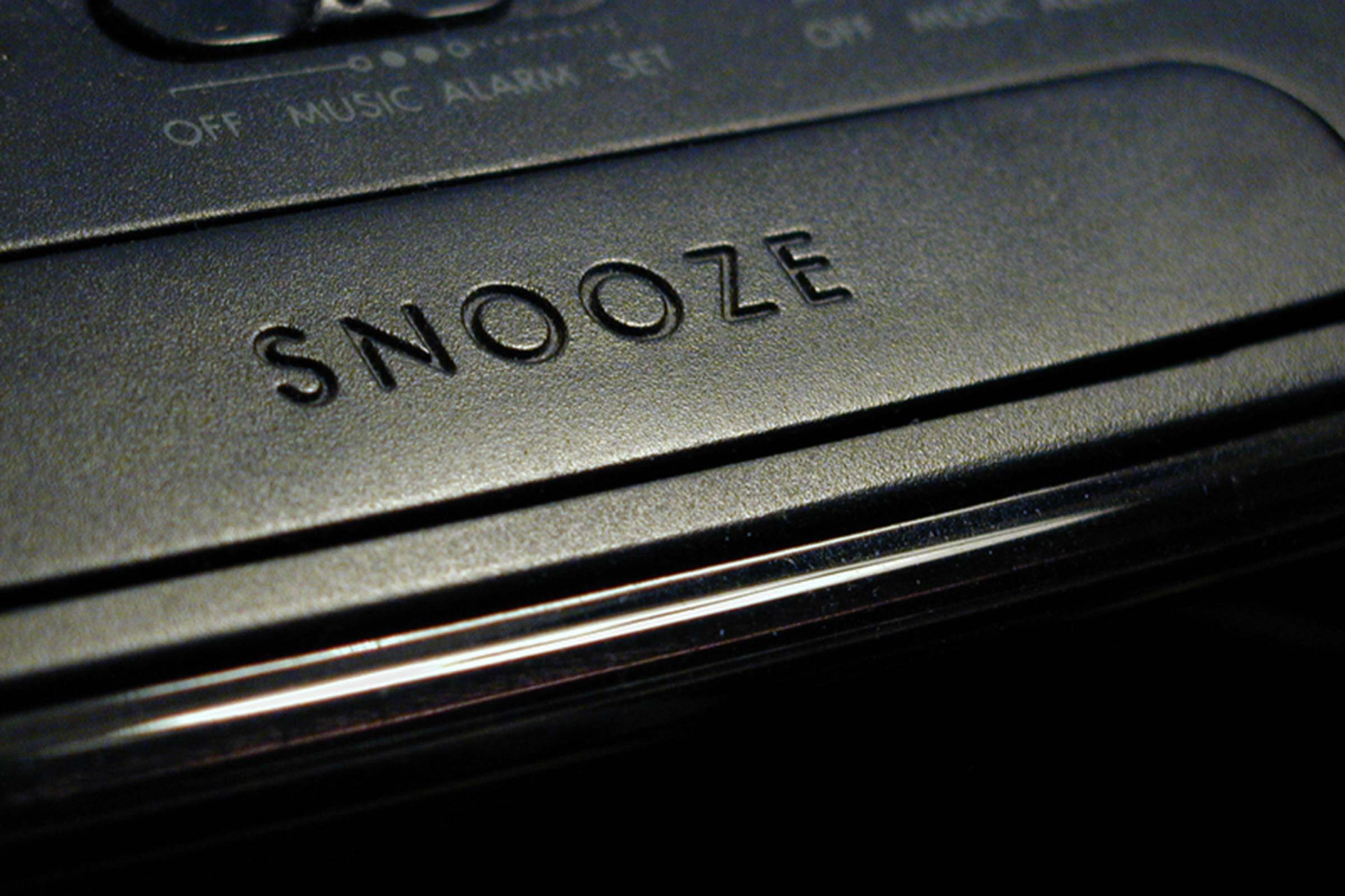
You “snooze” too long
“The snooze button can be a gamble if you’re not strategic about it,” says Dr. Dasgupta. Don’t “snooze” longer than 20 minutes, otherwise you’re at risk of falling back into a deep sleep stage, which will leave you feeling less than refreshed when you finally do get out of bed, he says. Try these almost effortless tricks to become more of a morning person.
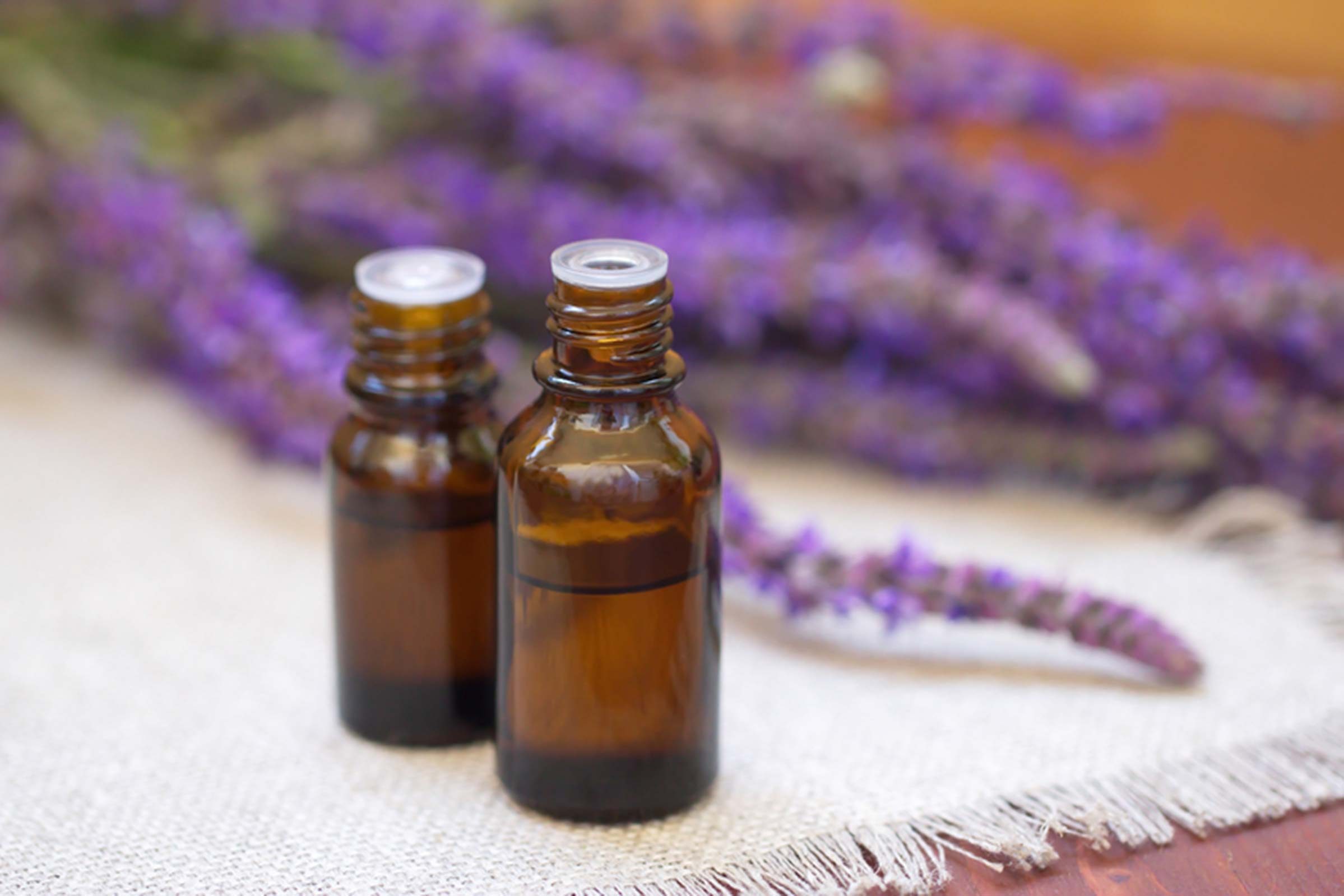
Your room doesn’t have a scent
Smell can play a role in a good sleep, too. Lavender has been shown to decrease heart rate and blood pressure, putting you in a more relaxed state that may summon sleep. One study even found that sleepers who sniffed lavender before drifting off slept deeper and felt more vigorous in the morning, according to the National Sleep Foundation. Doctors recommend these expert-approved secrets to better sleep, too.